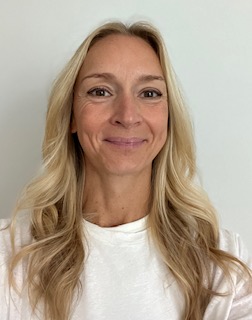
by Sophie Baker
This is the third installment in Sophie Baker’s ‘What I wish I had known…’ series, where she reflects on her approach to practice when she started out – and what she would tell her younger self now.
As a newly qualified social worker, I was taught that building trust sat at the heart of social work.
During my studies, I heard that children were more likely to share their thoughts, feelings and worries with professionals they trusted. I understood that secure, consistent relationships were vital for children to feel safe enough to open up about their experiences and hopes for the future.
What I hadn’t fully grasped was just how difficult a task building the foundations of a trusting relationship was going to be.
Creating true connections with children who are going through difficult experiences is an exceptional skill. It takes patience, warmth and sincerity.
Here are some lessons I learned when trying to form impactful relationships.
Being clear about my role

Sophie Baker has over 20 years’ experience in social work
I remember how difficult it was to explain my role to children in a way that felt honest and comforting.
In the early days, I often used vague phrases like, ‘My job is to keep children safe’. While this wasn’t wrong, it didn’t give a full picture of what that actually meant for them.
I wish I had taken the time to explain more. I could have said, ‘I talk to your family, teachers, and other people who care about you to see how we can make things better’; or, ‘Sometimes families go through difficult times and I help find ways to make things better’, or, ‘I will listen to you and make sure your voice is heard when decisions are made about you’.
Children want to understand why we are there and how we can help. We need to be as clear and transparent in our answer as we can.
Keeping promises
Not long after qualifying, I remember my supervisor telling me, ‘If you say it, do it!’. What a great piece of advice!
Many of the children I was working with had been let down by adults and, consequently, they needed to see the actions behind my words.
Children need to know they can rely on us. I learned that it’s not just about saying I would do something, it was also about following through with my promise.
Showing up when we say we will and doing what we promised is how we can demonstrate we are trustworthy. Children sometimes need deeds more than words.
Being present during visits
I knew that building a connection would be much easier when offering the child my undivided attention during our time together.
Yet the anxiety I felt during the first few months of practice hugely impacted on my ability to be truly in the moment at times.
In the rush to manage my workload, I sometimes found myself distracted. I would grab a few minutes here and there during home visits to speak to children, but I struggled to give them the uninterrupted, meaningful time they deserved.
I felt deeply ashamed. It took me some time to confess these issues to my manager, but it was ultimately supervision that helped reframe my way of thinking.
Techniques to prepare for sessions
I came to understand that relationship-building with children wasn’t an ‘extra’ part of the job, but the heart of effective social work.
I developed simple techniques to get mentally prepared before one-to-one sessions.
During car journeys, I created space in my mind by slowing my breathing and using affirmations such as ‘I am here, and I am ready to listen with my full attention’.
I also practised techniques like the 5-4-3-2-1 method, where you name things you can see, hear, touch, smell and taste to ground yourself in the present.
These small steps made a real difference, helping me to be fully engaged with each child and leave the ‘to do’ list aside.
Using creative tools for communication
Children often have a hard time expressing their feelings with words.
In my early days, I sometimes relied too heavily on traditional methods of talking and using worksheets.
However, I knew I needed to change that when Freddie, a young boy I was supporting, told me he had completed the same ‘Who Am I?’ worksheet multiple times with other workers. He was fed up, and rightfully so. It didn’t feel special to him.
He taught me the importance of diversifying my approach.
Direct work tools to use with children
 For tips and techniques to use when working with children, head over to Community Care Inform’s direct work knowledge and practice hub.
For tips and techniques to use when working with children, head over to Community Care Inform’s direct work knowledge and practice hub.
It includes general guidance on direct work, along with specific tools to use in particular contexts. It is available to anyone with a licence for Community Care Inform Children.
I started exploring more creative tools like sand trays art materials, and role play with him. A simple ice cream tub filled with sand and miniature figures allowed us to explore Freddie’s relationships, dreams, and strengths in a meaningful and playful way. It worked wonders in helping him open up!
Were I to have been developing this knowledge now, I think I would have also explored digital tools, such as apps and online games, which can engage children in new ways and make it easier to connect.
Being honest with children, even when it is painful
Throughout my career, I’ve had many painful conversations with children.
It’s an inevitable part of being a social worker. I sometimes needed to explore deeply distressing topics with children: grief after the death of a sibling, allegations of sexual abuse by a parent, the repeated disappointment of a parent failing to attend family time, the serious illness of a foster carer.
I always dreaded these discussions, and the emotional weight of them lingered long after with the memory of some of these still bringing a lump to my throat.
An important lesson for me during those interactions was always coming from a place of honesty and transparency.
It was so tempting to protect the children from stress and worry by softening the truth, being a bit vague or moving on quickly after I had delivered the news or asked a difficult question.
However, I came to understand that, when lacking accurate information, children will often make up their own versions of what is happening. The real danger lies in their imagination making things feel scarier than they really are.
I wish I had known that providing clear, age-appropriate information helps children make sense of the situation and gives them a greater sense of control.
Being honest during the most painful moments is one of the most valuable ways we can build trust with the children we work with.
Celebrate those who’ve inspired you

Photo by Daniel Laflor/peopleimages.com/ AdobeStock
Do you have a colleague, mentor, or social work figure you can’t help but gush about?
Our My Brilliant Colleague series invites you to celebrate anyone within social work who has inspired you – whether current or former colleagues, managers, students, lecturers, mentors or prominent past or present sector figures whom you have admired from afar.
Nominate your colleague or inspiration by filling in our nominations form with a few paragraphs (100-250 words) explaining how and why the person has inspired you.
*Please note that, despite the need to provide your name and role, you or the nominee can be anonymous in the published entry*
If you have any questions, email our community journalist, Anastasia Koutsounia, at anastasia.koutsounia@markallengroup.com







 Bournemouth, Christchurch and Poole
Bournemouth, Christchurch and Poole  Hampshire County Council
Hampshire County Council  Oxfordshire County Council
Oxfordshire County Council  South Gloucestershire Council
South Gloucestershire Council  Wokingham Borough Council
Wokingham Borough Council  Webinar: building a practice framework with the influence of practitioner voice
Webinar: building a practice framework with the influence of practitioner voice  ‘They don’t have to retell their story’: building long-lasting relationships with children and young people
‘They don’t have to retell their story’: building long-lasting relationships with children and young people  Podcast: returning to social work after becoming a first-time parent
Podcast: returning to social work after becoming a first-time parent  How managers are inspiring social workers to progress in their careers
How managers are inspiring social workers to progress in their careers  Workforce Insights – showcasing a selection of the sector’s top recruiters
Workforce Insights – showcasing a selection of the sector’s top recruiters 

 Facebook
Facebook X
X LinkedIn
LinkedIn Instagram
Instagram
Comments are closed.